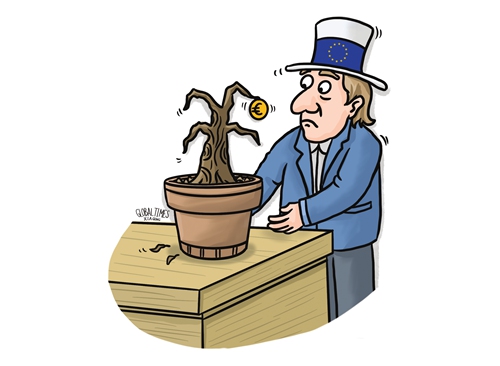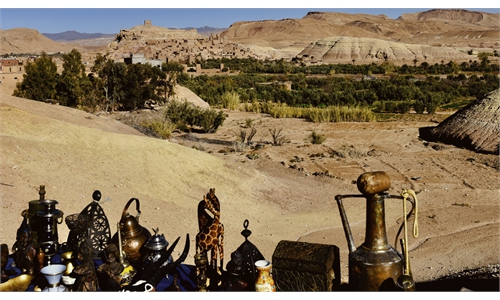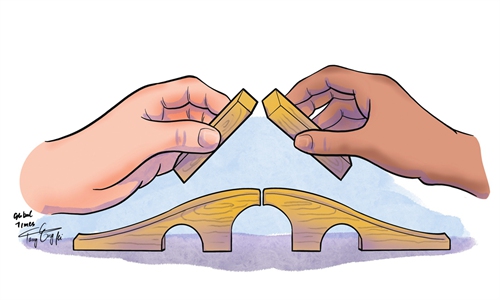
Illustration: Xia Qing/Global Times
Ahead of the European Union-African Union summit set to kick off on Thursday, the EU is reportedly working on a 20 billion-euro ($22.7 billion) financing plan to support African development.
Like other plans the EU has been busily drawing up recently, such as the Global Gateway, which was deemed to be the European replica of the China-proposed Belt and Road Initiative (BRI), the latest African financing plan was again being viewed as a move attempting to "counter China's reach in the continent," some media reports said.
The seemly rosy plan covers a wide array of areas, ranging from transport networks, energy, digital and education to health projects; however, EU member states "have yet to commit to financing the infrastructure plans," Bloomberg reported, citing officials familiar with the discussions.
Obviously, it is no easy task for the bloc to find real money to support the projects, as it faces mounting economic challenges at home; but the real issue here is that behind the EU or other Western countries' so-called plans supporting Africa are their geopolitical motives. What they need to bear in mind should be Africa, not China.
The truth is that many European countries and the US all have long histories in the African continent, though not positive ones. For instance, France and the UK, which recently left the EU bloc, were once the two largest colonial empires in the continent, plundering resource and ruthlessly exploiting African people.
Even today, colonialism is still deeply rooted in Western mentality regarding Africa, with their eyes fixated on the continent's resources and materials. The growth of African countries and the livelihood of African people are never on the priority list of the hypocritical Western powers. The former colonists' ill intention to collect interests from the continent has never disappeared, even though they are trying so hard to paint their attempts as development aid.
It is an indisputable fact that though some European countries have launched so-called aid programs in African countries for decades, they have not generated substantial growth for the continent and a majority of the world's least developed countries are still in Africa.
Meanwhile, Western countries and their corporations have enjoyed special advantages in various crucial sectors, including mining and government procurement. Still, trade and investment between some European countries and Africa have been declining in recent years. For instance, France accounted for about 11 percent of the continent's total import in 2000, but that figure dropped to 5.6 percent in 2017, according to a report from China Foreign Affairs University.
In the meantime, China has become a major partner for African countries in both trade and investment. Their cooperation in many areas, especially on infrastructure projects, has delivered enormous benefits to local residents; and more importantly, such cooperation has shaped up an effective and mutually beneficial model between China and other developing countries.
With an increasing number of developing countries choosing to join the BRI and seeking common development with China on an equal footing, many in the West have been unsurprisingly worried about losing hegemonic position in the countries and regions.
After their relentless propaganda campaign to promote "debt trap" theories failed to dissuade countries and regions from joining the BRI, some Western powers have now started to come up with new plans to undermine cooperation between China and developing countries, including those in Africa.
Apart from such an ill attempt, Western countries are also failing to understand and support the real needs of African countries. For example, as the Bloomberg report pointed out, "African leaders have prioritized roads, railways and bridges. But some EU governments face national budgetary constraints that make it hard for them to pledge significant funding ahead of the meeting."
As a genuine partner of Africa, China should not only welcome but also encourage genuine support for African development from developed countries. However, it is hoped that plans like the EU's 20 billion-euro initiative will yield concrete benefits for African people, not just eye-catching headlines and will focus on boosting development in the continent, not undermining China-Africa cooperation.
The author is an editor with the Global Times. bizopinion@globaltimes.com.cn


